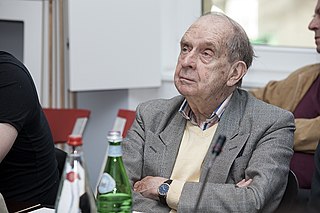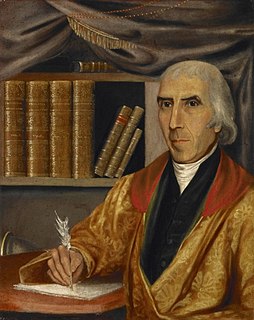A Quote by Daniel Webster
Finally, let us not forget the religious character of our origin. Our fathers were brought hither by their high veneration for the Christian religion. They journeyed by its light, and labored in its hope. They sought to incorporate its principles with the elements of their society, and to diffuse its influence through all their institutions, civil, political, or literary. Let us cherish these sentiments, and extend this influence still more widely; in full conviction that that is the happiest society which partakes in the highest degree of the mild and peaceful spirit of Christianity.
Quote Topics
Brought
Character
Cherish
Christian
Christianity
Civil
Conviction
Degree
Diffuse
Elements
Extend
Fathers
Finally
Forget
Full
Happiest
High
Highest
Hope
Incorporate
Influence
Institutions
Let Us
Light
Literary
Mild
More
Origin
Our
Our Father
Peaceful
Political
Principles
Religion
Religious
Sentiments
Society
Sought
Spirit
Still
Through
Us
Veneration
Were
Which
Widely
Related Quotes
No one can help us to achieve the intimate isolation by which we find our secret worlds, so mysterious, rich and full. If others intervene, it is destroyed. This degree of thought, which we attain by freeing ourselves from the external world, must be fed by the inner spirit, and our surroundings cannot influence us in any way other than to leave us in peace.
[T]here are, at bottom, basically two ways to order social affairs, Coercively, through the mechanisms of the state - what we can call political society. And voluntarily, through the private interaction of individuals and associations - what we can call civil society. ... In a civil society, you make the decision. In a political society, someone else does. ... Civil society is based on reason, eloquence, and persuasion, which is to say voluntarism. Political society, on the other hand, is based on force.
To the kindly influence of Christianity we owe that degree of civil freedom, and political and social happiness which mankind now enjoys.... Whenever the pillars of Christianity shall be overthrown, our present republican forms of government, and all blessings which flow from them, must fall with them.
Political philosophy is realistically utopian when it extends what are ordinarily thought to be the limits of practicable political possibility and, in so doing, reconciles us to our political and social condition. Our hope for the future of our society rests on the belief that the social world allows a reasonably just Society of Peoples.
If Americans are frustrated with Congress, imagine their frustration with a group of international bank officials running our ecomomy-bankers who may not have as their motive either to see us out of debt to them or to strengthen our economy, society, international influence, or other elements of our way of life.
Ultimately, one of the best ways to take care of our souls is to build a society that supports rather than undermines our highest moral and spiritual intuitions and inclinations. Yet, building that society can never be divided from the daily practices through which we live out our ethical and spiritual lives, both in the way we treat others around us, and in the way we nourish the God within us.
Today the separation of church and state is America is used to silence the church... The way the concept is used today is totally reversed from the original intent... It is used today as a false political dictum in order to restrict the influence of Christian ideas... To have suggested the state separated from religion and religious influence would have amazed the Founding Fathers.
If the blessings of our political and social condition have not been too highly estimated, we cannot well overrate the responsibility and duty which they impose upon us. We hold these institutions of government, religion, and learning, to be transmitted, as well as enjoyed. We are in the line of conveyance, through which whatever has been obtained by the spirit and efforts of our ancestors is to be communicated to our children.
As a great democratic society, we have a special responsibility to the arts. For art is the great democrat, calling forth creative genius from every sector of society, disregarding race or religion or wealth or color. What freedom alone can bring is the liberation of the human mind and a spirit which finds its greatest flowering in the free society. I see of little more importance to the future of our country and our civilization than the full recognition of the place of the artist.
The moral principles and precepts contained in the Scriptures ought to form the basis of all our civil constitutions and laws . . . The religion which has introduced civil liberty is the religion of Christ and his Apostles . . . This is genuine Christianity and to this we owe our free constitutions of government.









































